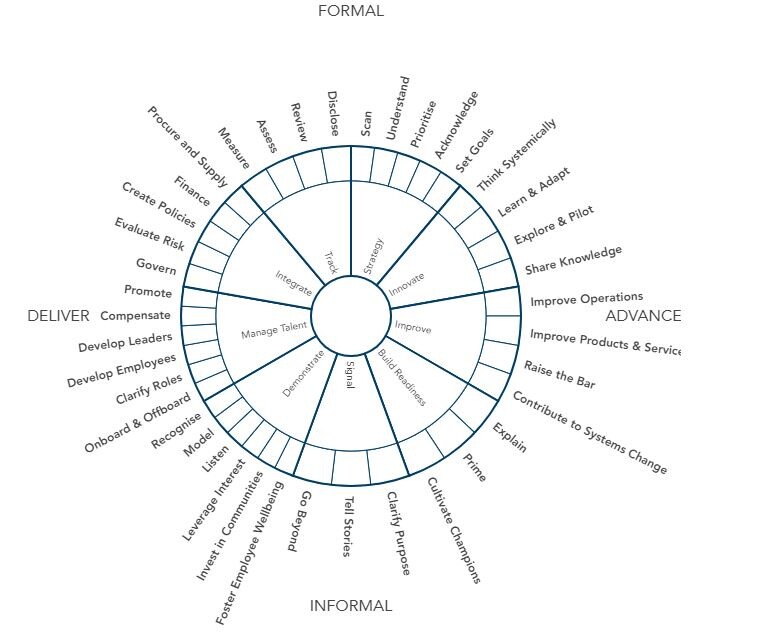Remember the why: CSRD as a tool for change
Blog
Many companies are deeply involved with the CSRD (Corporate Sustainability Reporting Directive). DMA, gap analysis, data collection, data integrity, meetings with accountants, studying ESRSs, sketching report structures... We're so busy with compliance and the required steps in the reporting process that it’s easy to forget the original purpose of the CSRD: driving the transition to a sustainable future.
With both customers and talent increasingly asking for integration into the business, sustainability can be a powerful catalyst for innovation, growth and value creation. This requires both a focused sustainable strategy and behavior change to implement the strategy.
Be selective in what you want to change: effectively embed sustainability
There are many types of behavior that can be instrumental to further embed sustainability in your organizational culture. As many as 60 different practices have been identified which are proven to be effective*. They can be clustered into four types of behavioral practices:
- Formal practices that leverage rules and procedures – like complying to the CSRD;
- Informal practices that are visible throughout the organization - like storytelling, explaining, and visible leadership commitment;
- Practices to deliver on existing commitments - like the sustainability content included when onboarding new employees and translating commitments into personal goals across the organization;
- Practices to advance further along the path to sustainability - like creating space and resources for pilots, exploring new knowledge.

The webinar participants found creating space for advancement the most challenging at the moment. Eelco Smit, Senior Manager of Environment Affairs and Product Compliance at Panasonic, highlighted the importance of selecting just a few key behaviors to change, selecting these across the four clusters. Having a focused strategy and visible leadership commitment are crucial. Use these as key ingredients for an inspiring story, with progress against targets.
He also had advice around the behavior of sustainability professionals themselves: to be both persistent and flexible to get things moving. And to seek out individuals with an interest in sustainability– to create a community of change agents across the organization – as you cannot do everything yourself.
Resolve resistance to change in the right order
Even with a clear strategy and inspiring and visibly committed leaders, you’ll still face resistance to change. Before you design interventions to overcome resistance, it’s important to recognize what kind of resistance is in place, what’s lacking. Faced with all three? Always resolve resistance from top to bottom on this list.
- Perceived importance – if people don’t understand that sustainability is relevant to the organization and their role, offering inspiration and driving a shared sense of ownership will be key;
- Intention to adopt – if people don’t know what to do and how to do it, offering information and a clear course of action will reduce insecurity;
- Getting to action – even the most committed people who understand the relevance and what they need to do might need a bit of help to actually get started, by making the first step as easy or small as possible.
The webinar participants shared that they found it most challenging to get people into action mode. Eelco Smit shared that in the current CSRD compliance mode, for all types of resistance, it is extra important to engage others with a clear story, a clear why, beyond “we have to comply with the CSRD”. And this may include engaging leadership with sustainability opportunities and demands from clients and talent.
Hungry for more?
Has this blog whet your appetite for more insights and examples around sustainability, strategic implementation of the CSRD and behavior change? Do you want to implement a scan to gain deep insights on how to effectively further embed sustainability into your organizational culture? Watch the webinar recording through this link. And if that is not enough, reach out to Ulrike (06 5107 2464 or ulrike@toscatribe.nl) or Marjolein (06 1296 5895 or marjolein@toscatribe.nl) to see if we can support you in any way.
* embedding sustainability in organizational culture. A Systematic Review of the Body of Knowledge. 2010 Network for Business Sustainability

















